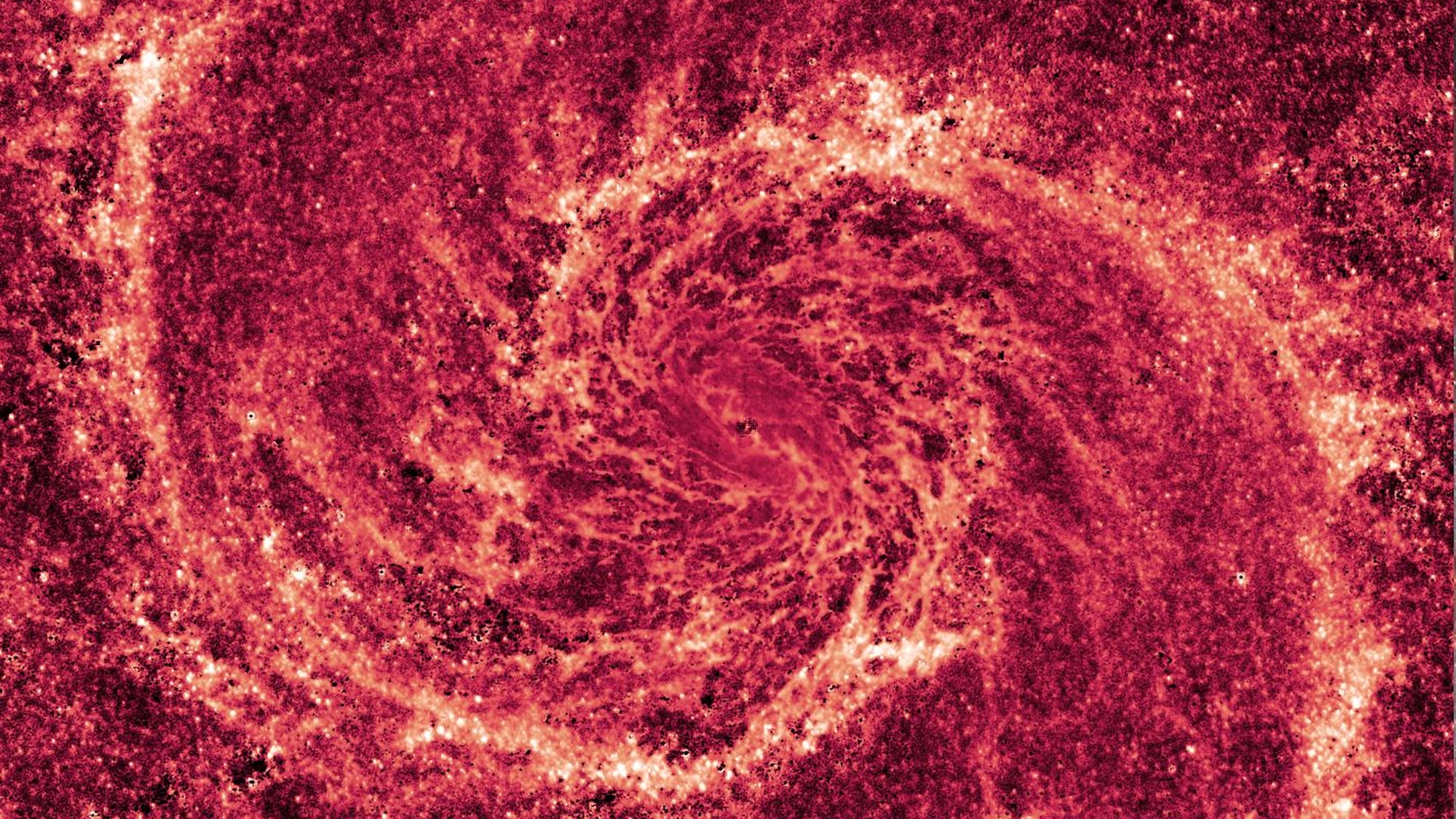The universe isn’t just expanding—it may be spinning
Get the Popular Science daily newsletter💡
The prevailing consensus in astrophysics is that the universe has spent the past 13-or-so billion years expanding outward in all directions, ever since the Big Bang. It’s expanding at this very moment, and will continue to do so until… a number of possible theoretical endings. Meanwhile, the specific rate at which the universe is growing remains a longstanding point of contention known as the “Hubble tension.” However, there may be a way to finally ease that tension—you just need to put a slight spin on everything.
In simplest terms, the rate at which the universe expands on paper doesn’t match actual astronomical observations. That speed—called the Hubble Constant—is measured in units of kilometers per second per megaparsec (km/s/Mpc), with a megaparsec measuring about 300,000 light years. The most widely accepted theoretical model, the Lambda/Cold Dark Matter model (ΛCDM), says the universe is growing at 67-68 km/s/Mpc. But what astronomers see through their equipment is a little faster, at about 73 km/s/Mpc. And therein lies the Hubble tension.
In a study published in the April issue of the Monthly Notices of the Royal Astronomical Society, a team of researchers including experts at the University of Hawai’i’s Institute for Astronomy argue that introducing a miniscule amount of rotation to standard mathematical model of the universe may provide the way to align both expansion theories.said in a statement. “Even better, it is compatible with other models that assume rotation.”
In addition to its mathematical compatibility, the concept also doesn’t break any of the known laws of physics. The problem is detecting this spin, given just how slowly the universe may be turning. But while it is difficult to discern with current tools, the spin is still fast enough to influence the expansion of space over the eons. Szapudi and their colleagues’ new model indicates the universe finishes a single rotation once every 500 billion years—meaning there’s still quite a bit of time before the universe completes its first full circuit.
“To paraphrase the Greek philosopher Heraclitus of Ephesus, who famously said ‘Panta Rhei’ (everything moves), we thought that perhaps ‘Panta Kykloutai,’ everything turns,” said Szapudi.
Looking ahead, astronomers hope to construct a full computer model of the universe based in part of their new theory. From there, they will hopefully be able to pinpoint signs of cosmic spinning to search for among the stars.


